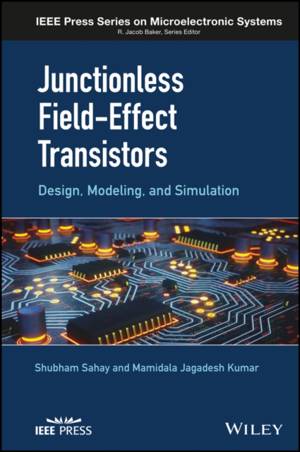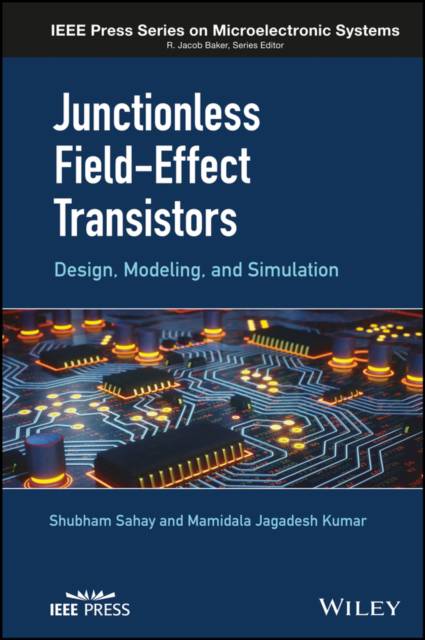
- Retrait gratuit dans votre magasin Club
- 7.000.000 titres dans notre catalogue
- Payer en toute sécurité
- Toujours un magasin près de chez vous
- Retrait gratuit dans votre magasin Club
- 7.000.000 titres dans notre catalogue
- Payer en toute sécurité
- Toujours un magasin près de chez vous
Junctionless Field-Effect Transistors
Design, Modeling, and Simulation
Shubham Sahay, Mamidala Jagadesh KumarDescription
A comprehensive one-volume reference on current JLFET methods, techniques, and research
Advancements in transistor technology have driven the modern smart-device revolution--many cell phones, watches, home appliances, and numerous other devices of everyday usage now surpass the performance of the room-filling supercomputers of the past. Electronic devices are continuing to become more mobile, powerful, and versatile in this era of internet-of-things (IoT) due in large part to the scaling of metal-oxide semiconductor field-effect transistors (MOSFETs). Incessant scaling of the conventional MOSFETs to cater to consumer needs without incurring performance degradation requires costly and complex fabrication process owing to the presence of metallurgical junctions. Unlike conventional MOSFETs, junctionless field-effect transistors (JLFETs) contain no metallurgical junctions, so they are simpler to process and less costly to manufacture.JLFETs utilize a gated semiconductor film to control its resistance and the current flowing through it. Junctionless Field-Effect Transistors: Design, Modeling, and Simulation is an inclusive, one-stop referenceon the study and research on JLFETs
This timely book covers the fundamental physics underlying JLFET operation, emerging architectures, modeling and simulation methods, comparative analyses of JLFET performance metrics, and several other interesting facts related to JLFETs. A calibrated simulation framework, including guidance on SentaurusTCAD software, enables researchers to investigate JLFETs, develop new architectures, and improve performance. This valuable resource:
- Addresses the design and architecture challenges faced by JLFET as a replacement for MOSFET
- Examines various approaches for analytical and compact modeling of JLFETs in circuit design and simulation
- Explains how to use Technology Computer-Aided Design software (TCAD) to produce numerical simulations of JLFETs
- Suggests research directions and potential applications of JLFETs
Junctionless Field-Effect Transistors: Design, Modeling, and Simulation is an essential resource for CMOS device design researchers and advanced students in the field of physics and semiconductor devices.
Spécifications
Parties prenantes
- Auteur(s) :
- Editeur:
Contenu
- Nombre de pages :
- 496
- Langue:
- Anglais
- Collection :
Caractéristiques
- EAN:
- 9781119523536
- Date de parution :
- 27-02-19
- Format:
- Livre relié
- Format numérique:
- Genaaid
- Dimensions :
- 155 mm x 231 mm
- Poids :
- 884 g







